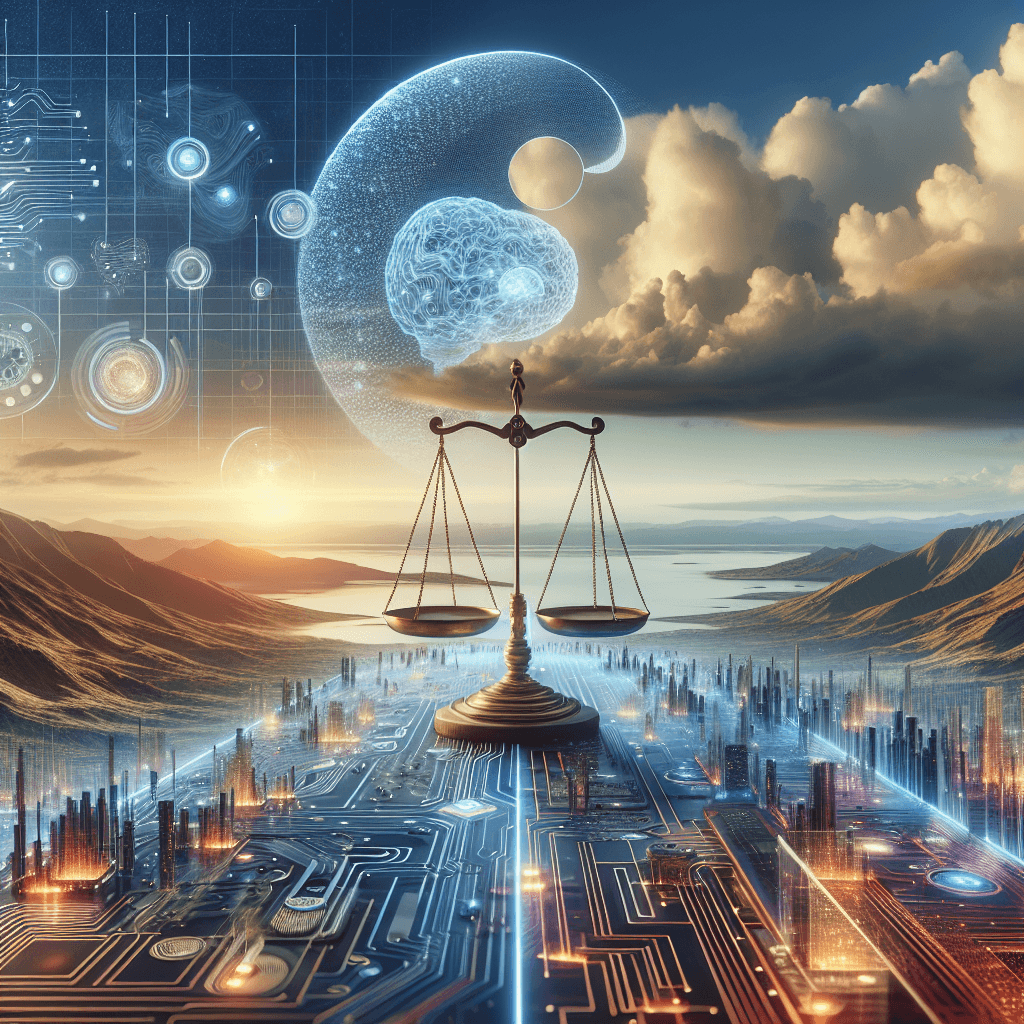AI's Ethical Frontier: Charting a Responsible Course for Tomorrow
The relentless march of technology has always posed ethical dilemmas, forcing humanity to confront its creations and set boundaries for their use. Today, we stand at the precipice of a new era, one where artificial intelligence (AI) is poised to reshape our world. As we integrate AI into every facet of our lives, from healthcare to finance, transportation to education, a crucial question emerges: How do we ensure AI's ethical development and deployment?
The ethical implications of AI are manifold. Bias in algorithms, privacy concerns, the potential displacement of human jobs, and even the existential threat posed by superintelligent AI all demand careful consideration. Ignoring these issues is not an option. A future where AI operates without ethical constraints is a future fraught with risk.
Confronting Bias in the Machine
AI systems are often touted as objective and impartial, yet they are only as good as the data they are trained on. If the data itself reflects existing societal biases – gender, racial, or otherwise – the AI will inherit and perpetuate these biases, potentially leading to unfair or discriminatory outcomes.
Imagine an AI-powered hiring tool trained on data that predominantly features male executives in leadership positions. This system could inadvertently penalize female candidates, hindering their career advancement. Similarly, an AI system used in the criminal justice system trained on biased data could lead to wrongful convictions or harsher sentences for certain demographics.
Guarding the Citadels of Privacy
AI thrives on data. The more data it has access to, the more it can learn and evolve. However, this insatiable appetite for data raises significant privacy concerns. Facial recognition technology, for instance, has the potential to erode anonymity in public spaces. AI systems that track our online behavior, purchase history, and social interactions raise concerns about the ownership and use of this data.
Striking a balance between leveraging data for AI development and safeguarding individual privacy is paramount. Robust data protection laws, transparent data collection practices, and user consent mechanisms are essential components of an ethical AI framework.
Navigating the Shifting Sands of Labor
The automation potential of AI has sparked widespread anxiety about job displacement. While it is true that AI will automate certain tasks, potentially rendering some jobs obsolete, it is also poised to create new opportunities and augment human capabilities.
The key lies in preparing the workforce for this AI-driven future. Investing in education and retraining programs will be crucial, equipping individuals with the skills needed to thrive in an evolving job market.
The Specter of Superintelligence
Perhaps the most profound ethical concern surrounding AI is the potential emergence of superintelligence – AI that surpasses human intelligence in every aspect. While this prospect may seem like science fiction, it is a topic that serious thinkers are grappling with today.
The development of superintelligent AI raises existential questions about the future of humanity. How do we ensure that such an entity remains aligned with human values? How do we prevent unintended consequences that could threaten our very existence?
Charting a Responsible Course
Navigating the ethical frontier of AI requires a proactive and collaborative approach. Governments, industry leaders, researchers, and the public must work together to establish ethical guidelines, regulations, and safeguards.
Here are some crucial steps we can take:
Embed Ethics into AI Development: Ethical considerations must be incorporated at every stage of the AI lifecycle, from design to deployment. This includes developing ethical frameworks, conducting bias audits, and implementing mechanisms for accountability and redress.
Promote Transparency and Explainability: The decision-making processes of AI systems should be transparent and explainable. "Black box" AI, where even the creators cannot fully understand how the system arrives at its conclusions, is unacceptable.
Empower the Public: Public awareness and engagement are crucial. Educating the public about AI, its potential benefits, and its risks, will empower individuals to demand ethical AI development and deployment.
Foster International Collaboration: AI is a global phenomenon, and its ethical implications transcend national borders. International cooperation is essential to establish global standards and norms for ethical AI development.
The dawn of the AI era presents both unprecedented opportunities and significant challenges. By embracing a proactive and ethical approach, we can harness the power of AI to create a more just, equitable, and prosperous future for all.
Want to learn more about the transformative power of technology and explore its implications? Visit 01TEK today to discover a world of knowledge at your fingertips.
It is hard to fail, but it is worse never to have tried to succeed.
Theodore Roosevelt



